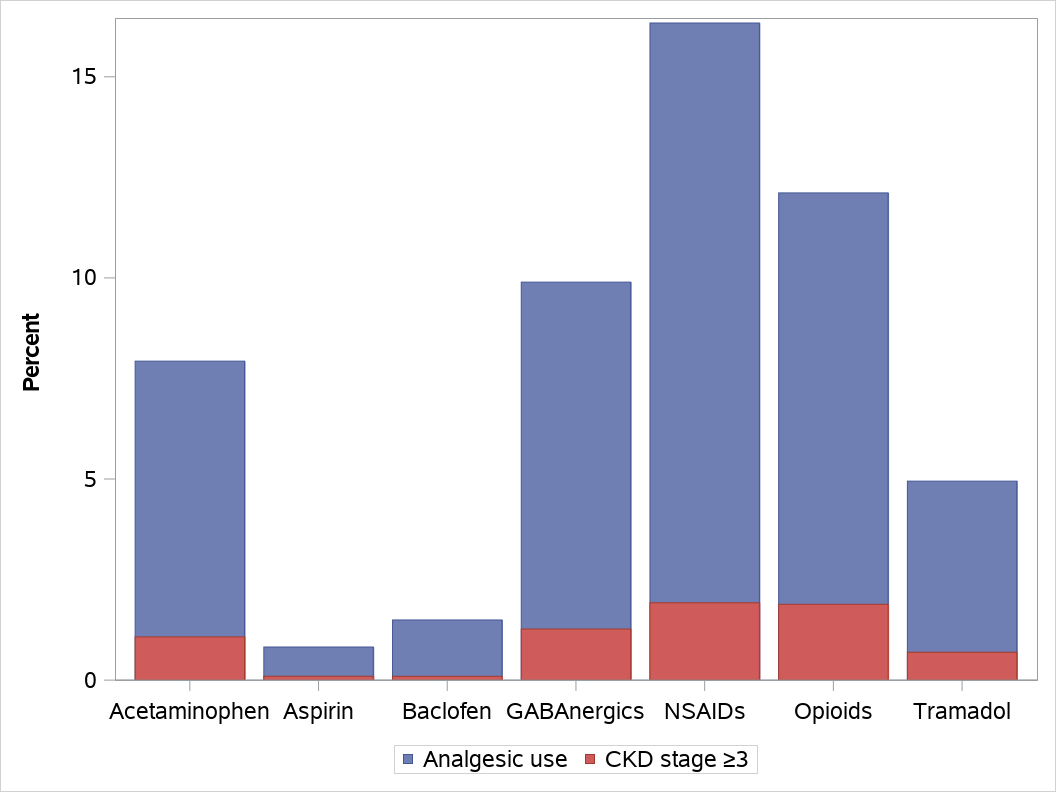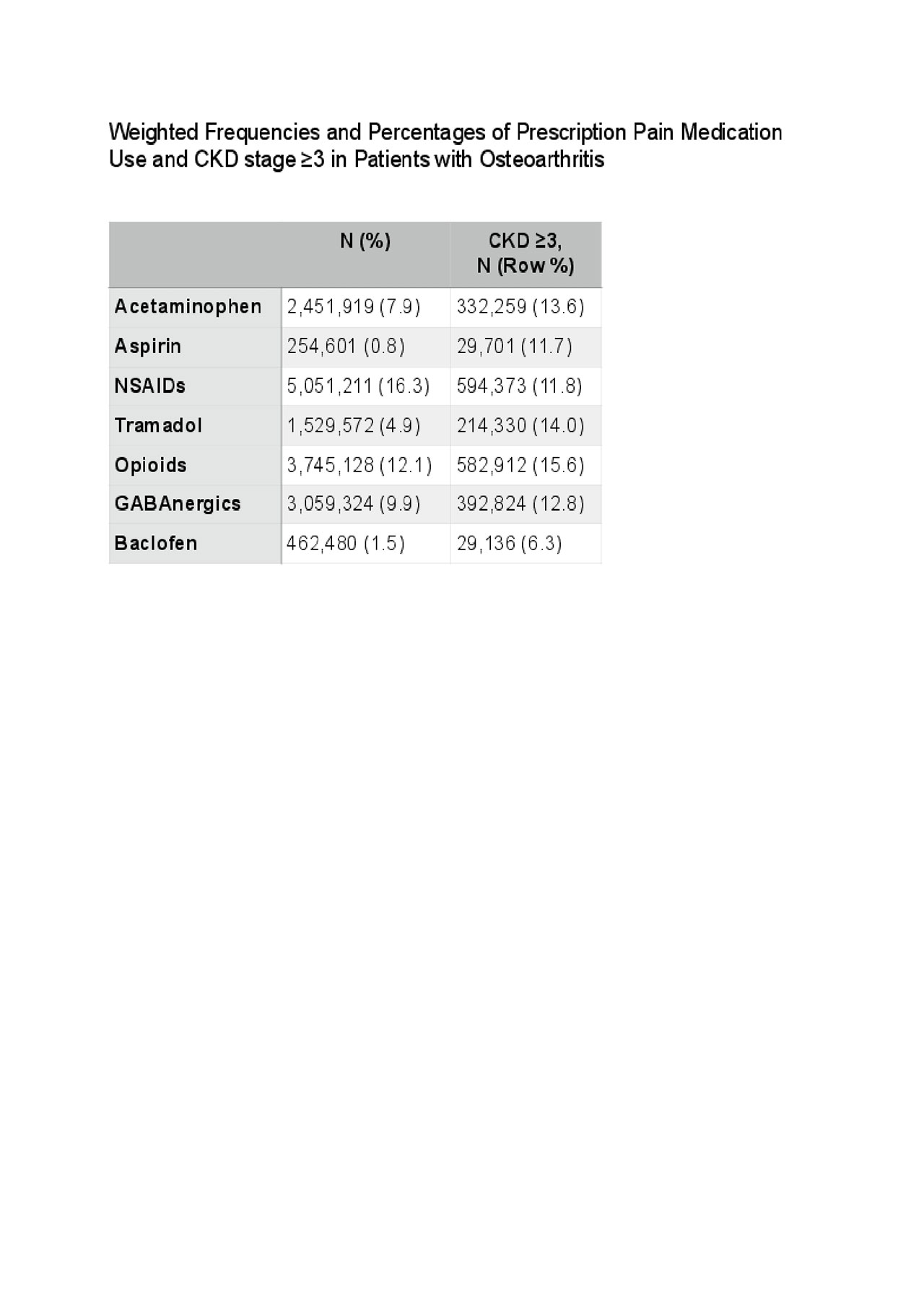Session Information
Date: Tuesday, November 12, 2019
Title: Epidemiology & Public Health Poster III: OA, Gout, & Other Diseases
Session Type: Poster Session (Tuesday)
Session Time: 9:00AM-11:00AM
Background/Purpose: The epidemiology of pain medication use among patients with osteoarthritis is not well explored. Chronic kidney disease (CKD) modifies choice of analgesics. The aim of this study was to explore real world use of pain medications in a nationally representative sample of patients with osteoarthritis.
Methods: The CDC’s National Health and Nutrition Examination Survey (NHANES) 2013-2016 data were used, which is nationally representative of the non-institutionalized civilian resident population of the United States. The survey includes at-home questionnaires and health examination with laboratory testing. The study sample included adults (age ≥20 years) with a self-reported physician-made diagnosis of osteoarthritis. Prescription pain medication use in the past month was classified into groups: acetaminophen, aspirin, NSAIDs, tramadol, opioids, GABAnergics, and baclofen. eGFR was calculated using the CKD-EPI formula. Demographics including age and gender were identified. Survey-specific statistical methods were used to account for sample design and weighted frequencies and percentages were calculated with 95% confidence intervals (CI).
Results: There were 1,212 adults with osteoarthritis in the NHANES 2013-2016 sample, which represented 30,918,356 people when weighed. The sample was 65.0% female with a mean age of 61.5 years (95% CI, 60.6-62.4). eGFR was < 60 mL/min per 1.73 m2 (CKD stage ≥3) in 13.7% of study sample. The most commonly used prescription pain medications were NSAIDs, n=5,051,211 (16.3%); opioids, n=3,745,128 (12.1%); and GABAnergics, n=3,059,324 (9.9%). The prevalence of CKD stage ≥3 was 11.8% in NSAID users, 15.6% in opioid users, 12.8 in GABAnergic users, and 14.0% in tramadol users (See figure). Commonly used NSAIDs were meloxicam, n=1,648,619 (5.3%); celecoxib, n=965,139 (3.1%); and ibuprofen, n=947,035 (3.1%). Commonly used opioids were hydrocodone, n=2,088,939 (6.8%); oxycodone, n=967,814 (3.1%); and morphine, n=425,875 (1.4%). Use of more than one class of pain medication included: NSAIDs and Opioids, n=1,158,653 (3.7%); NSAIDs and GABAnergics, n=1,136,693 (3.7%); Opioids and Gabanergics, n= 1,201,136 (3.9%); and NSAIDs, opioids, and GABAnergics, n=464,595 (1.5%).
Conclusion: Using nationally representative data, we described the epidemiology of prescription pain medication use, CKD prevalence, and use of combinations of pain medications in patients with osteoarthritis.
To cite this abstract in AMA style:
Saeed M. National Estimates of Pain Medication Use in Patients with Osteoarthritis [abstract]. Arthritis Rheumatol. 2019; 71 (suppl 10). https://acrabstracts.org/abstract/national-estimates-of-pain-medication-use-in-patients-with-osteoarthritis/. Accessed .« Back to 2019 ACR/ARP Annual Meeting
ACR Meeting Abstracts - https://acrabstracts.org/abstract/national-estimates-of-pain-medication-use-in-patients-with-osteoarthritis/


